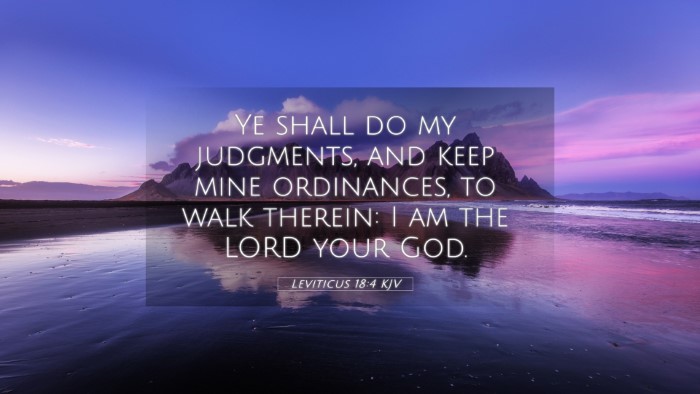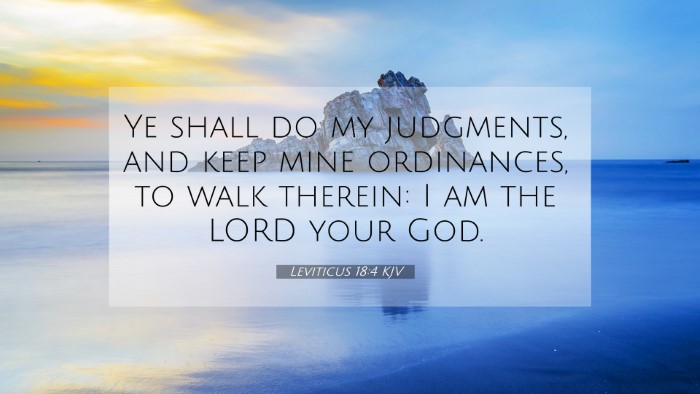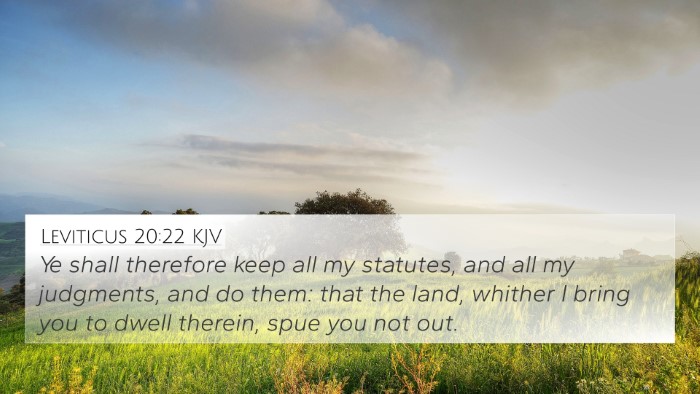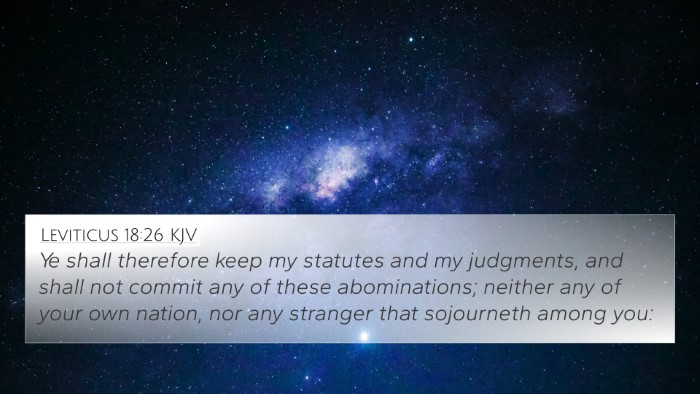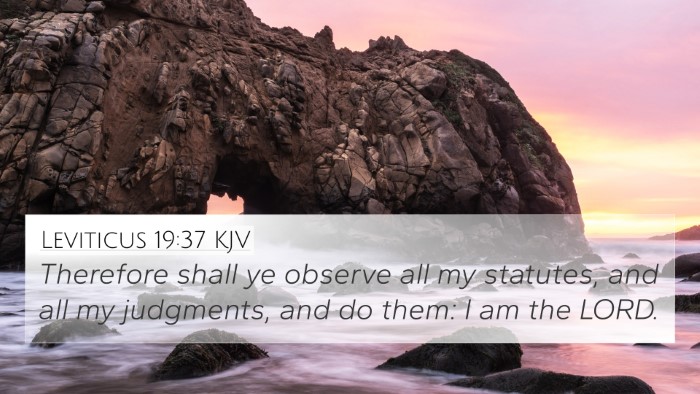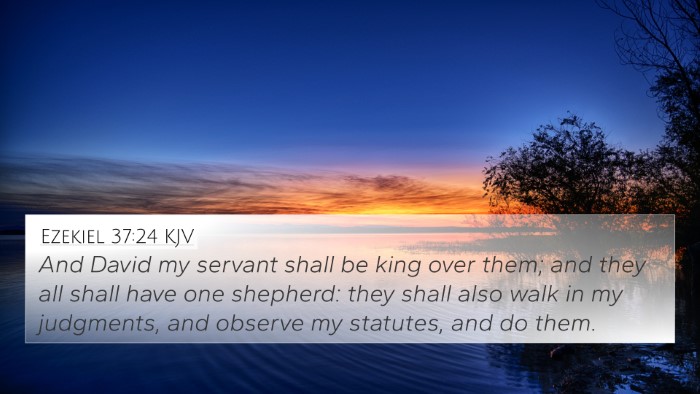Understanding Leviticus 18:4
Leviticus 18:4 states, "You shall follow my rules and keep my statutes and walk in them: I am the Lord your God." This verse serves as a command from God to the Israelites, emphasizing the necessity of adherence to divine statutes and guidelines for living a righteous life. The commandments are not merely rules but are positioned as a moral framework given by God himself.
Meaning of Leviticus 18:4
The verse conveys several important theological themes and lessons:
- Obedience to God's Commands: The emphasis on following rules and statutes illustrates the importance of obedience in the life of a believer.
- Divine Authority: The phrase "I am the Lord your God" underscores the authority of God over His people, establishing a covenant relationship defined by devotion and adherence to His laws.
- Moral Living: This call for moral standards highlights the need for a life that reflects God’s character and righteousness, guiding His people away from sin and towards holiness.
Combined Insights from Public Domain Commentaries
Utilizing insights from prominent public domain commentaries can enrich our understanding of Leviticus 18:4. Here's a summary:
Matthew Henry's Commentary
Henry emphasizes that God’s commands are not burdensome; instead, they are designed for the well-being of His people. He notes that this verse establishes a line of distinction between the practices of the Egyptians (to which the Israelites were accustomed) and the holiness expected of God’s people. The call to follow God's statutes is a reminder that His ways bring life and blessing.
Albert Barnes' Commentary
Barnes interprets this verse as a foundational principle for the Israelites. He highlights that God's rules are to be regarded as universal standards of conduct, applicable for the community in all God's dealings. The call to “walk in them” relates to the everyday life choices and actions of individuals and the community, reflecting their commitment to God's moral directives.
Adam Clarke's Commentary
Clarke focuses on the broader application of this verse, drawing parallels to the life of believers today. He believes that the commands are set to foster spiritual growth and community integrity, suggesting that the emphasis on walking in God's statutes is crucial not just for the Israelites but for all believers. He also discusses the significance of unwavering fidelity to God as vital for receiving His blessing.
Cross-References to Leviticus 18:4
Understanding Leviticus 18:4 is enhanced through cross-references with other Bible verses. Here are some relevant connections:
- Exodus 20:6: This verse stresses God's mercy towards those who love Him and keep His commandments, linking God's love to obedience.
- Deuteronomy 5:33: Similar to Leviticus, it calls the people to walk in God's ways for their own good.
- Romans 12:2: This New Testament verse urges believers to not conform to the pattern of this world but to be transformed by renewing their minds, connecting with the theme of living according to God’s statutes.
- 1 Peter 1:15-16: Peter refers to the necessity of holiness, reflecting the command to be holy as God is holy, which resonates with the essence of Leviticus 18:4.
- Galatians 5:16: Paul encourages believers to walk in the Spirit, reflecting the importance of following divine guidance in daily life.
- Matthew 28:20: Jesus commands His followers to observe everything He has commanded, linking the Old and New Testament themes of obedience.
- John 14:15: Jesus states that if you love Him, you will keep His commandments, reaffirming the connection between love for God and adherence to His statutes.
- Micah 6:8: This verse highlights what the Lord requires of His people, mirroring the moral demands in Leviticus.
- Proverbs 3:5-6: Trusting the Lord and acknowledging Him in all ways exhibits the kind of lifestyle Leviticus 18:4 aspires to.
- Hebrews 8:10: This verse discusses the new covenant where God’s laws will be written on the hearts of His people, further reinforcing the continuity of divine expectations across biblical history.
Applying Leviticus 18:4 Today
The contemporary application of Leviticus 18:4 encourages believers to explore the principles of obedience, moral integrity, and the pursuit of holiness in their daily lives. Here are ways to apply its lessons:
- Personal Reflection: Reflect on personal behaviors and choices in light of God’s commands, seeking a lifestyle that honors His statutes.
- Community Involvement: Foster environments in families and churches that emphasize the significance of God's word as a guide for moral living.
- Bible Study: Utilize tools for Bible cross-referencing to explore connections between Old and New Testament teachings and gain deeper insights into God's moral expectations.
- Accountability: Engage in accountability groups that encourage commitment to living out biblical principles, drawing support from fellow believers.
Conclusion
Leviticus 18:4 serves as a clarion call for God’s people to remain steadfast in their obedience and devotion to God. Understanding its implications through the lens of commentary studies and cross-references can profoundly enrich a believer's spiritual journey. By embracing the lessons of this verse, Christians today can learn to navigate their paths with divine guidance, reflect God’s holiness, and embody the rich moral heritage of their faith.

